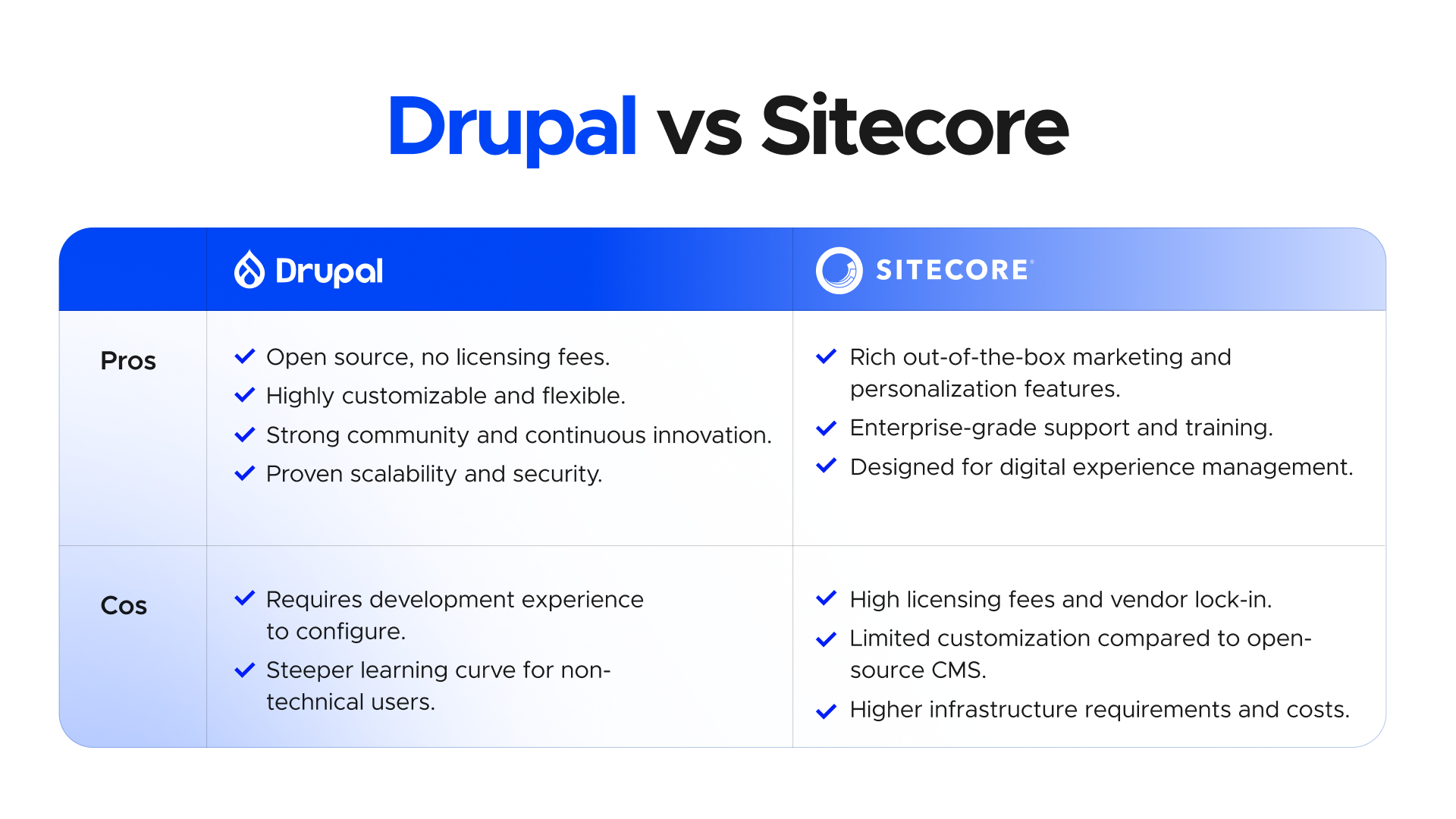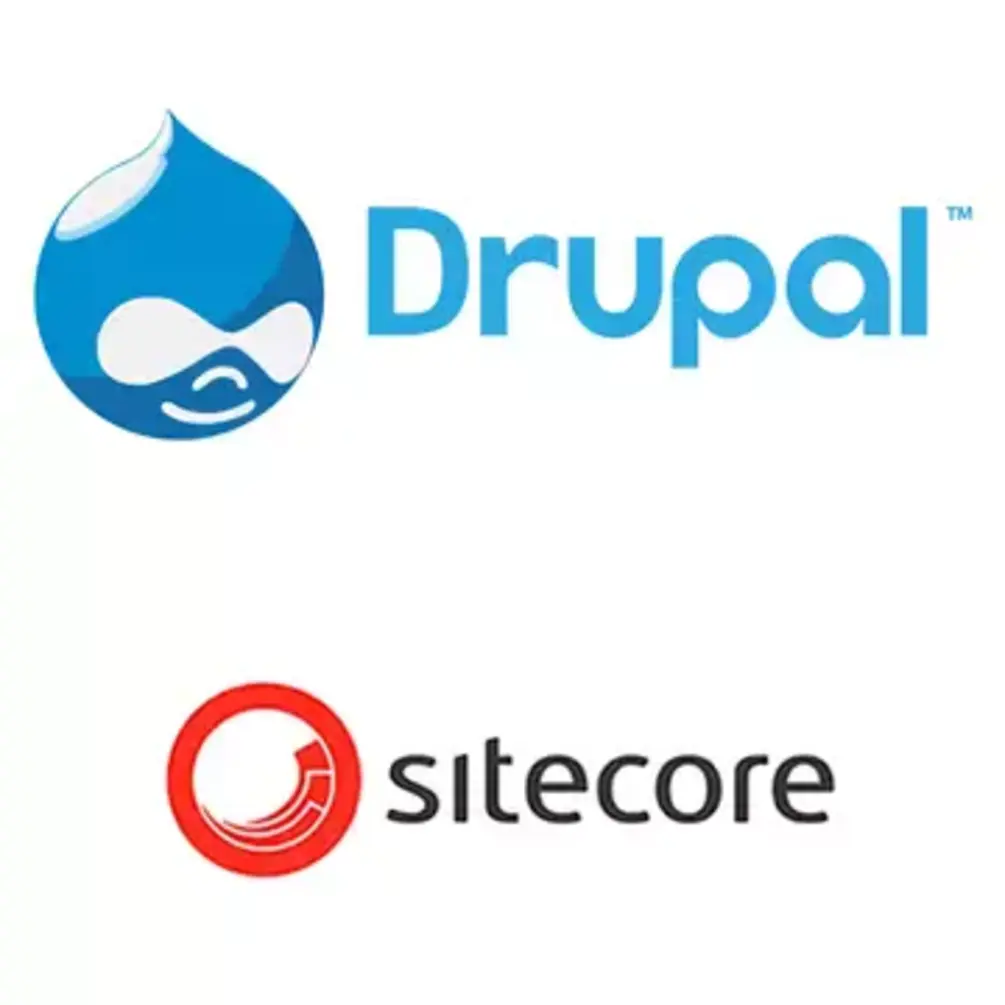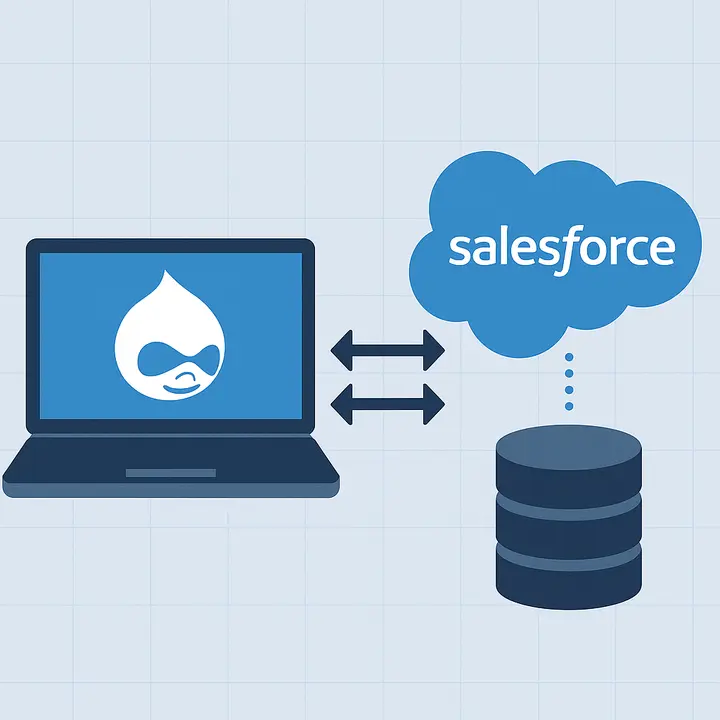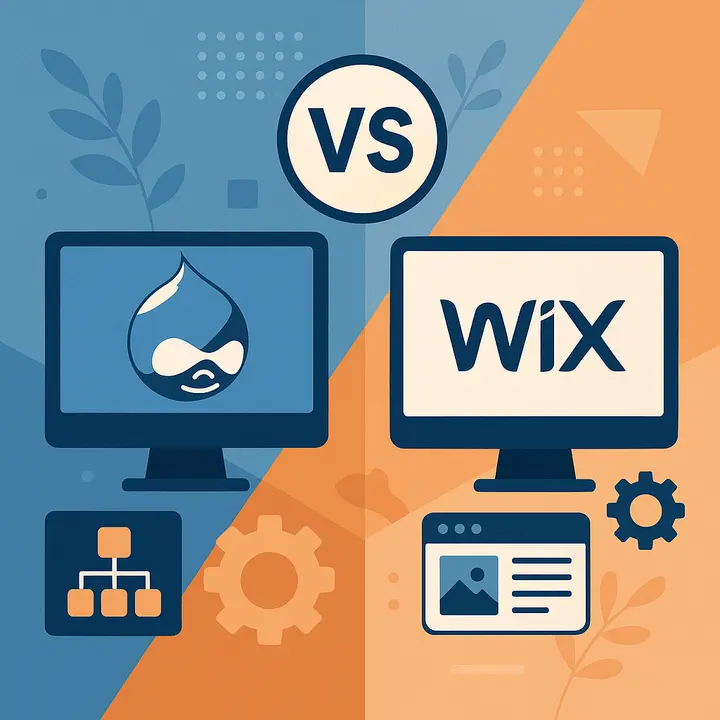Drupal and Sitecore: A Key Comparison
Choosing Drupal vs Sitecore is a strategic decision that can shape your digital platform for years to come. Both CMS platforms have solid reputations, but they approach content management differently. Drupal is an open-source platform that boasts unmatched flexibility and customization. Sitecore, on the other hand, is a proprietary solution aimed at the enterprise segment with built-in digital marketing tools and the Sitecore Experience platform.

Businesses can create unique solutions with Drupal, integrate third-party services, and scale the platform to meet any requirements. Unlike Sitecore, which simplifies processes for large budgets with ready-made capabilities and vendor support, Drupal gives full control over architecture, integrations, and workflows. The differences in cost, security, and integration approaches often determine which CMS is the right choice.
To make an informed decision, let’s explore the key aspects of each platform:
Cost and Licensing
Drupal. Drupal is an open-source platform, so there are no licensing fees. Costs are focused on Drupal services, development, support, and hosting, making it accessible for mid-sized businesses. Expenses scale with project size rather than vendor-imposed requirements, making it an ideal choice for growing projects.
Sitecore. Sitecore is a proprietary CMS with high licensing fees. In addition to the license, businesses must plan for the costs of servers, infrastructure, and skilled staff to support the platform. This approach is only viable for businesses with multi-million dollar digital budgets. For example, Sitecore, when it comes to ready-made enterprise solutions, the investment may be justified, but smaller organizations may find it restrictive.
Flexibility and Customization
Drupal. One of Drupal's greatest strengths is its flexibility. Drupal comes with a modular system, supports a headless CMS architecture, allows you to create your own content types, and even allows you to develop your own modules. Drupal allows us to fully adapt the platform to complex business needs, making it ideal for unique projects.
Sitecore. While Sitecore shines with powerful out-of-the-box features, deep customization is limited. Organizations often need certified partners or vendor support for significant changes. Compared to Drupal, this reduces flexibility and increases dependency on the Sitecore ecosystem.
Integration with External Tools
Drupal. Known for its seamless API connections, using Drupal allows easy integration with CRM systems, marketing platforms, and other third-party tools. For example, connecting with Salesforce, HubSpot, or Mailchimp can be done smoothly without proprietary restrictions.
Sitecore. Sitecore is particularly strong in native integrations, but scaling and connecting additional systems may incur extra costs. Like Sitecore, Drupal can integrate widely, but it provides more freedom to choose services and workflows.
Scalability and Performance
Drupal. Drupal 8 and later versions are proven for high-traffic sites, from government portals to university networks. Performance is enhanced by modern hosting and community-driven best practices.
Sitecore. While scalable, Sitecore may require significant infrastructure and operational costs. Higher traffic means more servers, licenses, and support, which can be prohibitive for some organizations.
Security
Drupal. Expertise in Drupal and a dedicated security team ensure timely updates and patches. Many governments, banks, and security-sensitive organizations find Drupal a trusted choice.
Sitecore. Enterprise-level support is provided, but users depend on vendor releases for vulnerability fixes. Compared to Drupal, this creates potential risks if critical updates are delayed.
User experience and Personalization
Drupal. Offers personalization through modules and integrations with marketing tools, providing freedom to tailor experiences. Although not always "out of the box," Drupal makes sophisticated personalization possible, making it an ideal choice for companies seeking flexibility.
Sitecore. Sitecore is brilliant for personalization and marketing, with built-in A/B testing, targeting, and campaign management. For businesses that need out-of-the-box marketing tools like Sitecore, the system reduces setup time and simplifies digital experience management.






